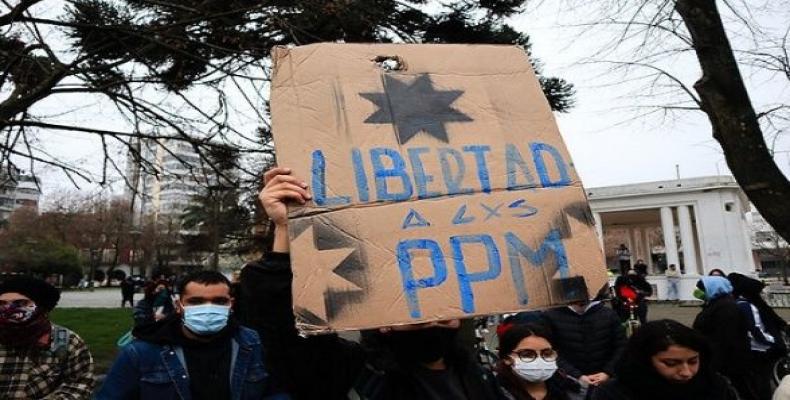Santiago de Chile, August 6 (RHC)-- Eight Mapuche political prisoners remain on hunger strike at Angol Prison in Chile due to the lack of progress in talks with Sebastian Piñera's government.
The representative of these prisoners, Rodrigo Curipan, affirmed that they will not participate on Friday in the so-called "Intercultural Dialogues" organized by the Ministry of Justice, which gather leaders, academics and other professionals of Mapuche origin.
He added that these meetings do not respond to the critical situation of 27 Mapuche prisoners in different prisons of La Araucanía and Bío Bío, and have little to do with a critical and open look at the application of Convention 169 of the International Labour Organization (ILO).
Rodrigo Curipan said that "the government wants to involve us in a working group that it has already designed" and in which "the application of Convention 169 will not be dealt with effectively, but rather the institutionality of the State is trying to make up for it with Convention 169, but there is no profound change," he added.
This position is also supported by the other Mapuche community members, including the precursor to the strike, machi Celestino Córdova, who like his comrades in struggle has been fasting for 94 days.
The situation of this ancestral authority has become extremely delicate and has suffered complications in recent days, said one of its spokespersons, Cristina Romo, who denounced that the Chilean government has not made any approach to resolve the demands that led the prisoners to the hunger strike.
She emphasized that the urgency is not in advancing in the "Intercultural Dialogues," but "in solving the hunger strikes that are underway," and insisted that "here people are at risk, human lives are at risk."
ILO Convention 169 on Indigenous and Tribal Peoples in Independent Countries is based on respect for the cultures and ways of life of indigenous peoples and recognizes their rights to lands and natural resources, as well as to decide their own priorities in the development process. The Mapuche communities demand respect for them. Chile had incorporated it into its legislation in September 2009.


